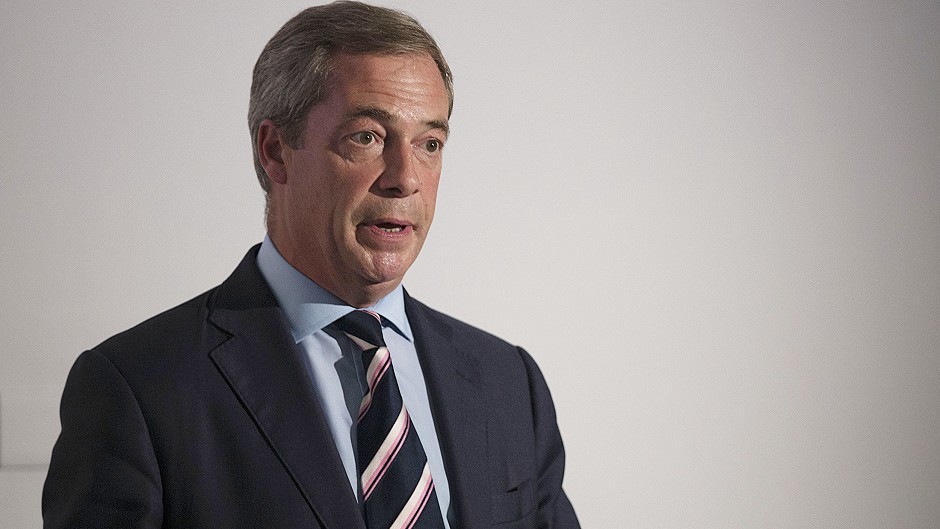Broadcasters have been accused of forgetting Scotland after proposing TV election debates that would feature UKIP but not the SNP.
Concerns were raised by several political parties about the joint plan by the BBC, ITV, Sky News and Channel 4 for Nigel Farage to be included in one of the live events in the run-up to next year’s General Election vote.
The four organisations suggested having one debate where Prime Minister David Cameron took on Labour’s Ed Miliband, another in which Lib Dem Nick Clegg was added, and a third involving the UKIP leader as well.
However, the proposal was dismissed as “utterly unacceptable” by the SNP, which has six MPs and a majority in the Scottish Parliament, but would not have any representation in the debates.
The Green Party, which has one MP, the same number as UKIP in the wake of Douglas Carswell’s by-election victory last week, also criticised the plans.
Having long been a feature of US presidential elections, live TV debates were first used in a British general election in 2010, and have since been used in the lead-up to last month’s Scottish independence referendum.
All of the main parties want to have similar debates next year, but they disagree on the format.
Mr Cameron, the Conservative leader, raised questions about the broadcasters’ proposals.
Asked if he would be willing to debate with Mr Farage, he said: “I’m in favour of TV debates, but you’ve got to make sure you come up with a proposal that everyone can agree to, and I can’t see how you can have one party in that has an MP in parliament, and not another party.”
Mr Miliband was one of the few leaders to back the idea as a “positive step forward”.
“I hope David Cameron is not going to put up false obstacles to these TV debates happening,” he added.
SNP Westminster leader Angus Robertson, the Moray MP, attacked the plan.
“These proposals will be utterly unacceptable to any democrat,” he said.
He added: “Despite the experience of the referendum campaign, the network broadcasters have once again forgotten their responsibility to Scotland.”
The Lib Dems said: “We do not accept the proposal that the Liberal Democrats, as a party of government, should be prevented from defending our record in one of the TV debates.”
Patrick Harvie, co-convener of the Scottish Greens, said: “Greens across the UK are level pegging on polling with Lib Dems so should not be excluded from high profile TV debates featuring the coalition’s austerity cheerleaders.”
